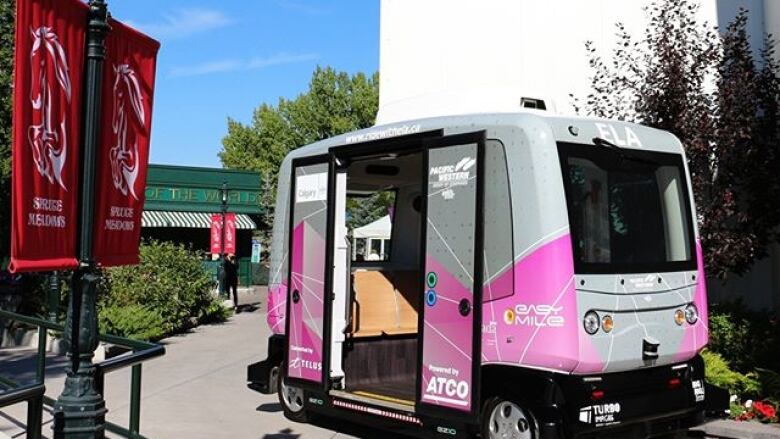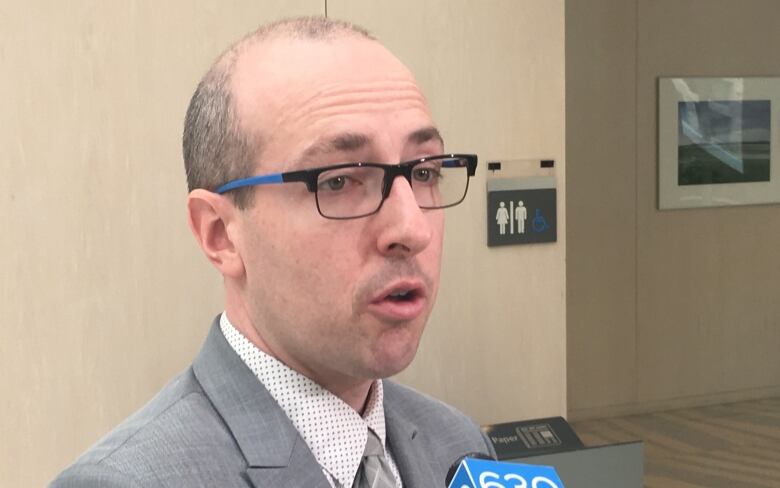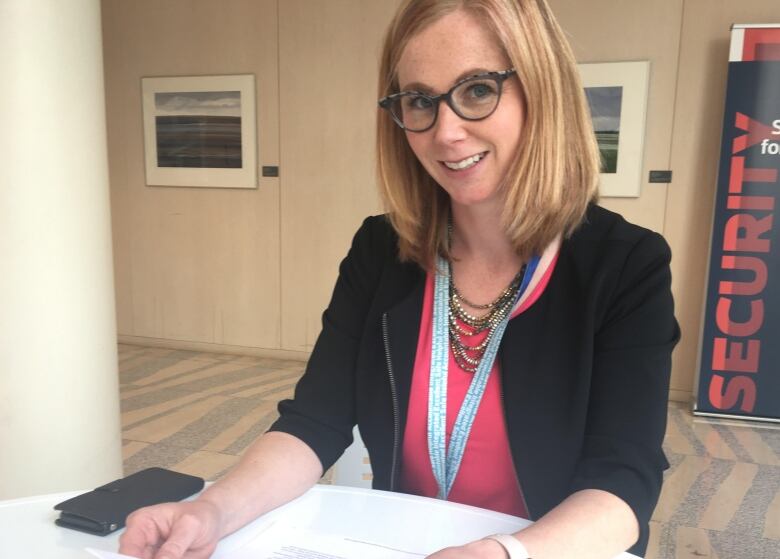Coming soon: Buckle up for Edmonton's first driverless shuttles
Pilot project at four locations in Edmonton to start in October

Edmontonians and visitors may have to pinch themselves next month when they see a shuttle go by with no driver.
The city will testelectric autonomous shuttlesat four closed-off sites in Edmonton in a two-month pilot project starting in October.
The public will be able to take one-kilometre, six- to seven-minute rides and tell the city what they think.
Coun. Andrew Knack said the pilot project brings home the reality of smart technology.
"We talk about the word autonomous vehicles or self-driving vehicles," Knack said. "It's one thing to talk about it, it's something entirely different to actually go into that vehicle, sit in it and realize, 'Wow, this is already here.' "
The ELA(Electric Automation) pilot is a partnership with Pacific Western Transportation, the company that runs the Red Arrow buses. It's also being tested in Calgary.
The company pitched the idea to the city inApril.
- Get on board with driverless transit, Edmonton told
- Edmonton to host Canada's first smart network for vehicles
ELAis made byEasyMile, an autonomous vehiclecompany that has supplied shuttles inmore than 20 countries across Asia, the Middle East, North America and Europe.
Stephanie McCabe, manager of the city'scorporate strategy branch, said the shuttles will use technology from the University of Alberta'sActive Aurora project.

The shuttles can hold about 12 people. Though completely automated, each will have an attendant on board.
The pilot is being conducted in the early winter to see how the technology works in a cold climate.
Later this month, the city will reveal the locations where the shuttles will be tested.
The pilot project will cost about $30,000.
Smart Transportation Action Plan
It is one component of the city's new smart transportation action plan, a framework to prepare for more autonomous vehicles, smart traffic signals and electric charging stations.
City council's urban planning committee adopted the plan at a meeting Tuesday.
"It's a transformational time," Coun. Michael Walters said. "A long time ago, we changed from the horse and buggy to the car, and over time cars have become more sophisticated."
Knack said companies like GM have announced they will start releasing driverless fleetsin cities by 2020.
"For a lot of people it sounds [like], 'What world are we talking about?'' he joked. "These are what the companies are investing billions of dollars in, and will likely be operating in less than 10 years."
Personal rapid transport

"They can join up, sort of to the size of a bus, and move the amount of people as what a standard bus would have," Knack said.
He said the shuttles are able to break off into separate pods people can ride home or to work.
"The actualvehicle then starts breaking off into its independent shuttles."
Traditional transit stations will also likely change, Knack said.
Mobility as a service
Instead of selling individual driverless vehicles, Knack expects automotive companies will start branding their products under a service model.
"Everything we do as consumers now is typically service based. We subscribe to Netflix, we subscribe to Spotify, we subscribe to all these services."
All major vehicle manufacturers are planning to use subscription services "that can be as efficient if not more than driving our own personal vehicle," he said.
The city is working with ATCO to install up to 10 curbside electric charging stations by March 2019.
ATCO is using a grant from Natural Resources Canada, said Mike Mellross, the city's program manager for energy transition.
The city is also in preliminary talks with EPCOR to own and operate the sites.
Mellross said electric vehicles haven't caught onin Edmonton the way they have in other cities, such as Vancouver.
"The penetration rate of those vehicles is quite low right now," Mellross said.
There are about 400 electric vehicles registered in Edmonton, he said.

He said Edmonton should consider a user-pay system for charging stations.
"It's definitely a trend in the automotive industry right now to electrify their fleet."
Electricvehicles can typically go 150 kilometres on one charge, depending on how much heat is being used. Batteries range from company to company.
Some stores already havecharging stations in their parking lots.
"I see nothingwrong with the status quo."
Coun. Jon Dziadyk voted against adopting the transportation plan, calling it "virtue signalling."
"This seems to be more about our climate goals than moving people," he said.
Dziadyk said the city should focus on getting more people to take public transit and the LRT.
"I see nothing wrong with the status quo."
Dziadyk was the only dissenting voice at the meeting on the smart transportation action plan.
Coun. ScottMcKeensaid it was dangerous for council as a whole to send mixed messages to administration about the future transportation plan, which will inevitablyinclude smart technology.
"I think this work is critical," he said. "They will do to transportation what theinternetdid to communications."
Walters said the plan is not only about climate but congestionand movement of goods and services, calling the report thoughtful and prudent.
"I disagree vehemently in the assertion that this is virtue signalling," he said.
Walters said taxpayers are not on the hook for electric charging stations or the plan.
He suggested the city will end up saving a lot of money in the future by getting away from fluctuating fuel costs.
"Be prepared for the future," Walters said to the committee.
The city's corporate strategy branch will ask council at upcoming budget talks to approve salaries for one to three staff positions. The employees will keep up with emerging technologies related to the smart transportation plan.












_(720p).jpg)


 OFFICIAL HD MUSIC VIDEO.jpg)
.jpg)



























































































